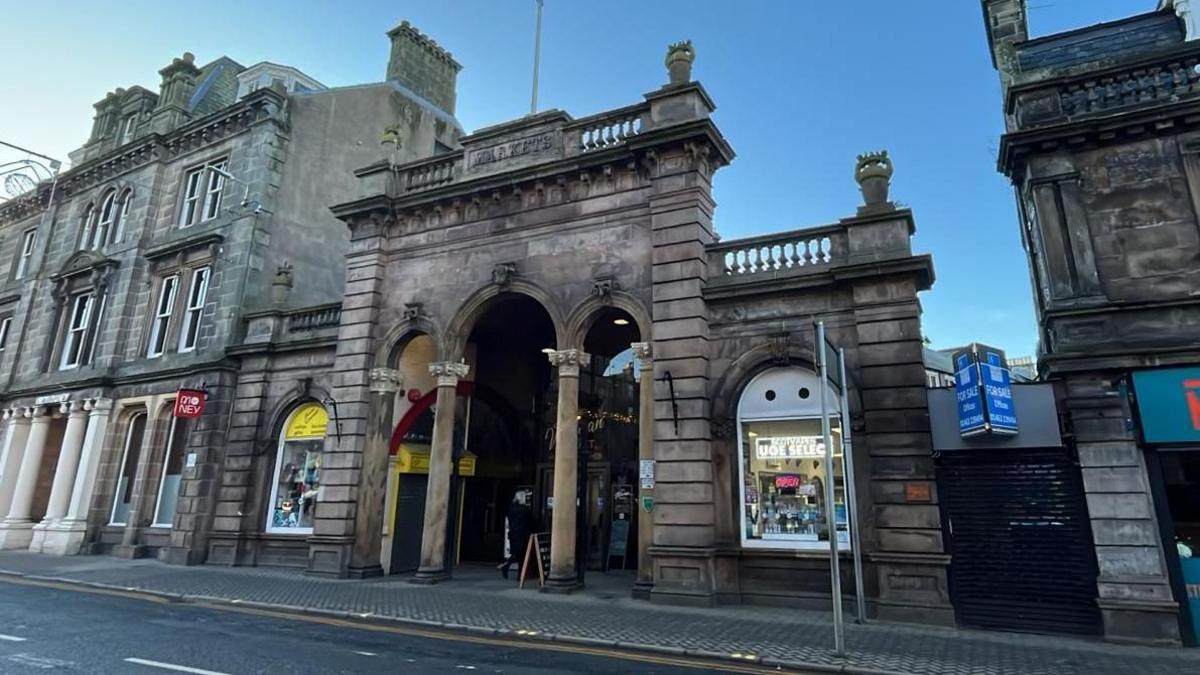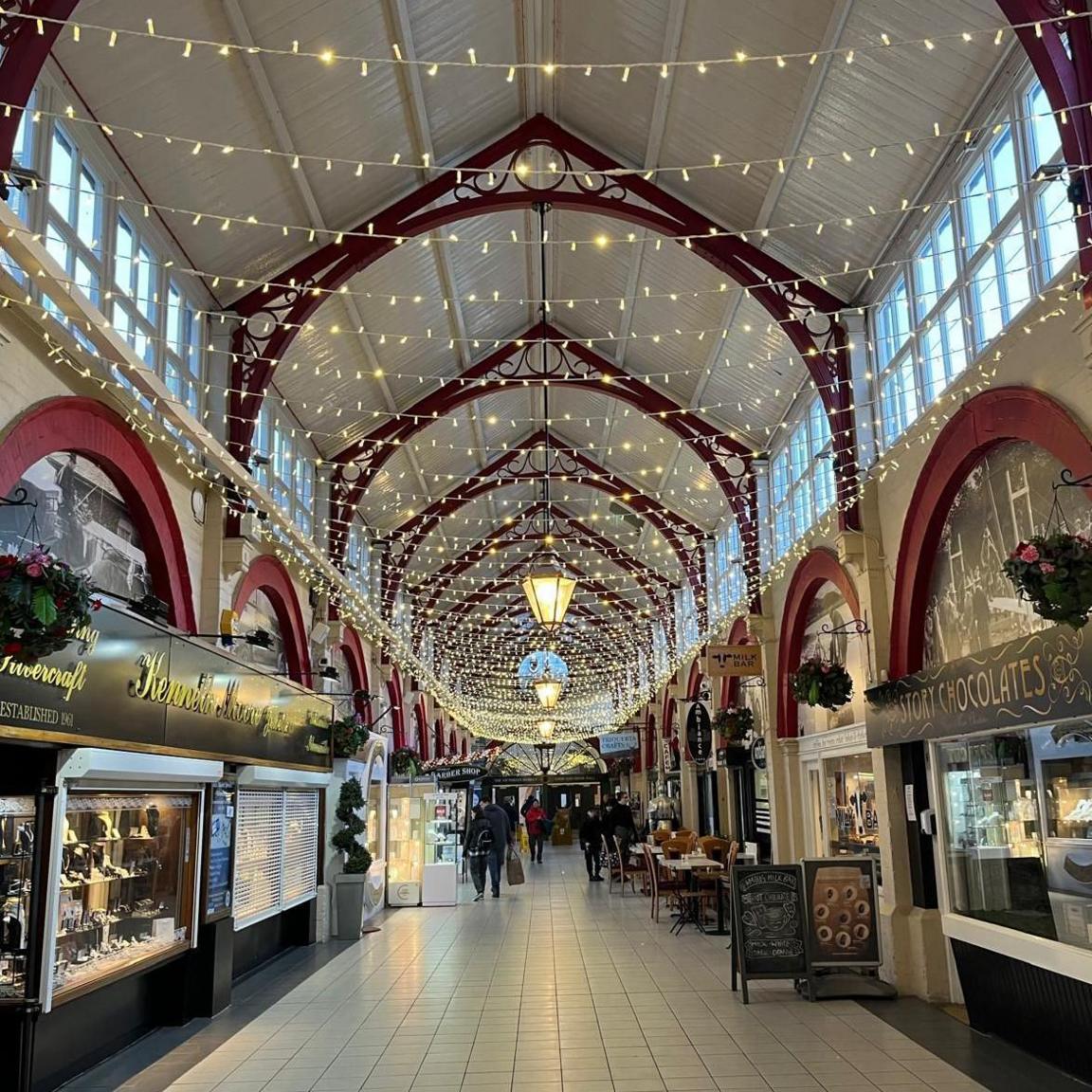Council solar panels 11 years late, say Greens

The panels were installed on the roof of Inverness' Victorian Market in early 2014
- Published
Solar panels installed by Highland Council as part of efforts to make Inverness greener have been switched on more than a decade late, according to the Scottish Greens.
The £20,000 renewable energy scheme was fitted to the roof of the 154-year-old Victorian Market in Inverness city centre in March 2014.
The aim was to reduce the arcade's fuel costs and help Inverness towards being designated a Carbon Clever city this year.
The Scottish Greens said the scheme had only now been turned on, but Highland Council said they had operated continuously since their installation.
When installed the solar panels were expected to bring an annual energy cost saving of £500 to £1,000 for the council-run market.
The scheme was also expected to generate £1,200 every year for the Inverness Common Good Fund - a pot of money used to benefit community projects.
Scottish Green MSP Ariane Burgess said work by Green councillors had led to the panels finally being switched on.
Councillor Chris Ballance said: "It's unbelievable that for 10 years no-one in successive administrations asked the right questions, or demanded solutions, or even seemed to notice the panels hadn't been switched on."
But Highland Council said electricity generation began during the 2013-14 financial year.
It said the system had recorded generation during each calendar year since.
The council said all its solar photovoltaic (PV) systems installed across its estate were fully operational from their respective installation dates through to 2022.
A spokesperson said: "During routine inspections, a number of systems were identified as potentially requiring upgrades to maintain safe operation.
"In line with our commitment to safety and efficiency, the decision was made to temporarily isolate these systems while a full evaluation of the required works was undertaken."

The market was recently redeveloped
The Victorian Market was first opened in 1870.
Its stallholders included butchers, grocers, jewellers and a fish market.
In 1889 the gas-lit property was gutted by a fire. All that was left standing was a stone-built entrance way.
A dog left inside overnight to guard the butcher's shop perished in the blaze.
Within a few years the market was rebuilt and reopened.
A recent redevelopment of the site was completed in 2022. It is a popular attraction for residents and visitors to the Highlands.
Net-zero targets
Highland Council has been seeking to meet its net-zero targets, including reducing the amount of energy its uses for its properties and fleet of vehicles.
Net zero means no longer adding to the total volume of greenhouse gases in the atmosphere.
Last year, a council report warned of "limited progress" in some areas of achieving its aims.
It has a number of other renewable and low-carbon projects.
They include Hydro Ness, which generates electricity from the River Ness at Inverness using an Archimedes screw - a means of drawing water at low level to a higher level using a design attributed by some experts to the ancient Greek scientist Archimedes.
The local authority is building an air source heat pump system to warm Inverness Castle and neighbouring properties.
It has also been piloting the use of electric cargo bikes in some of its staff's work.